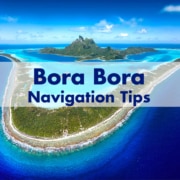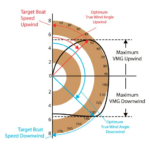Not having the right qualifications/experience
This one is a bit of a sore spot, we’ll admit. There are sailing education companies out there who will have you believe that you can read some books, maybe even take a few 0n-water classes, and then be issued some kind of certification that will allow you to charter a sailboat anywhere in the world. If I could press one of those obnoxious buzzers and say “Wrong!” I would. You can read our entire “Biggest Lie in Sailing” blog post for the whole story, but the short version is that you need documented experience before any reputable charter company will allow you to take one of their boats. At NauticEd, we use an electronic logbook so our students can show charter companies their experience. The NauticEd Software summarizes the student’s sailing achievements into a charter-friendly Sailing Resume. This is a free service to NauticEd Students.
If you’re unsure, speak with your charter vacation booking agent or the charter company themselves and confirm your qualifications and experience before you make your booking. Be aware here if using internet booking engines. Make sure you are working with an agent who knows the requirements. You should submit your sailing resume in plenty of time before you travel there to really be sure.
The Mediterranean and The Seychelles
These sailing regions require a Sailing License. A sailing license is not a certification. The two most accepted Sailing Licenses in these regions are the ICC (International Certificate of Competence) and the SLC (Sailing License and Credentials). No matter who you are or how much experience you have or what and where you have sailed in the past, you simply must (as of 2018) have a Sailing License. But as above, you must also have an adequate sailing resume of experience. This is why the “Zero to Hero – Get Certified to Charter” programs don’t work. If you have a different license, check with your charter agent as to if what you have is adequate — license-wise and experience-wise.
Nervous? Join a Flotilla
Being nervous about skippering a sailboat on a sailing vacation is a bad idea. Even if you feel competent, you must also be confident. If you have any hesitations, consider joining a flotilla where you have a lead boat with a competent Captain leader who can help out in areas where you need. NauticEd operates many flotillas throughout the year: See https://sailing-blog.nauticed.org/sailing-vacations/#flotillas










